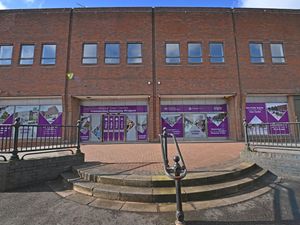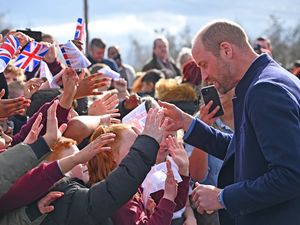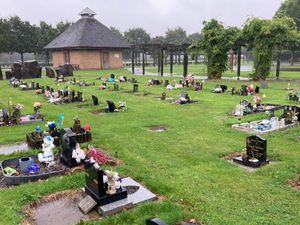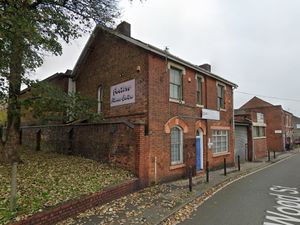Residents threaten legal action over Willenhall Gasworks land now declared safe
Residents who were led to believe their homes were on contaminated land have threatened to take legal action against the council - after the site was declared safe more than a decade later.
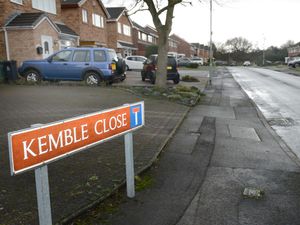
The Stonegate and Trent Park estates were built on the former Willenhall Gasworks site and the homeowners were told the land was contaminated, which they said lead to warnings over falling house prices and not to grow vegetables in their gardens.
But it has now been revealed that the land is in fact not contaminated, and is in no worse state than many other former industrial sites in the Black Country.
Walsall Council has thanked residents for their support and arranged a special cabinet meeting for next week to discuss the site and to get it taken off the 'contaminated land' list.
A residents-only meeting has also been arranged to allow them to quiz council officers.
But some of the residents have said this is not good enough and want compensation and an official certificate stating their land is not contaminated.
Houses 'worth nothing'
Craig Walton, who runs the United Kingdom Pub in Bloxwich Road, was told not to grow vegetables in his garden.
The 55-year-old of Kemble Close said: "We've got an apple tree and we've been told we can't eat from it or grow vegetables in the garden.
"And now we've been told it's not contaminated, go on with your lives.
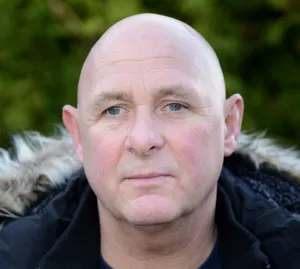
"We need a certificate saying there's nothing wrong with the land."
Another resident of Kemble Close, Violet Lee, has been living in her home for 41 years.
The 67-year-old said: "People who have wanted loans against their house have not been allowed to get them because their house is worth nothing.
"There was talk at one stage about flattening all of the houses and last year they tested all of our gardens.
"We think we're going to get together and get a solicitor and sue the council.
"I just can't believe it's taken them 12 years."
Metal and tar
In what is one of Walsall's longest-running sagas, houses began to pop up on the site in the 1970s after the gasworks had shut a decade earlier.
It is believed the site was not properly cleared before builders moved on, with heavy metals, tars and a gas manufacturing by-product called Blue Billy said to be on the land.
Walsall Council first revealed its fears in 2007, before officially listing the land as contaminated in 2012 following a lengthy investigation and expert advice.
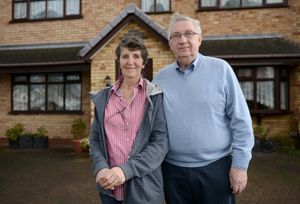
But in 2015 doubts began to surface over whether the land was actually contaminated or not.
Walsall Council served a mediation notice on Jim 2 Limited, the company which it claimed was behind the contamination, to clean the site up at a cost of £2.5 million. The notice was appealed and taken to the planning inspectorate, which launched a public inquiry.
This inquiry concluded in 2017 and revealed it did not think the land met the Secretary of State’s Guidance to constitute ‘contaminated land’.
In response Walsall Council ordered Land Quality Management Ltd (LQM) to carry out more tests on the site, which have now concluded that the land is in fact not contaminated.
Compensation
Elizabeth Bailey, a 48-year-old mother-of-three intended to extend her house when she moved to the street but could not afford to pay for the soil to be cleared.
The Morrisons worker has battled cancer twice in that time.
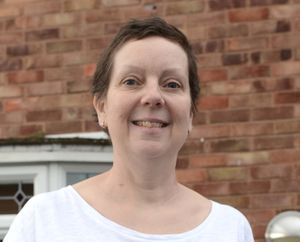
She said: "I hope they will give us some sort of compensation. It was added stress at a time when I had cancer."
And retired couple David and Rolande Puller said whatever happens now the houses will always be thought of as 'tainted'.
Mr Puller, 69, said: "The council should have made sure the site was cleaned and safe from day one in the 70s.
"Why wasn't this test done in the first place, then they would've known from the beginning."
Councillor Mike Bird, leader of Walsall Council, said: “There are potentially contaminative substances in the soil, which is not uncommon on post-industrial sites such as this.
"However, it is not at a level where there is a significant possibility of causing, or which causes, significant harm and therefore, it can no longer be considered to be ‘contaminated land’ under the Act.
“The homeowners and other residents who have been affected by this issue for over 10 years now are very firmly first and foremost in our decision-making.
"A special meeting of cabinet has been called to consider this very recently received expert advice, because the affected residents deserve to have this matter considered now, rather than wait for the next scheduled meeting of cabinet – for these residents, this matter can’t, and shouldn’t, wait.”

